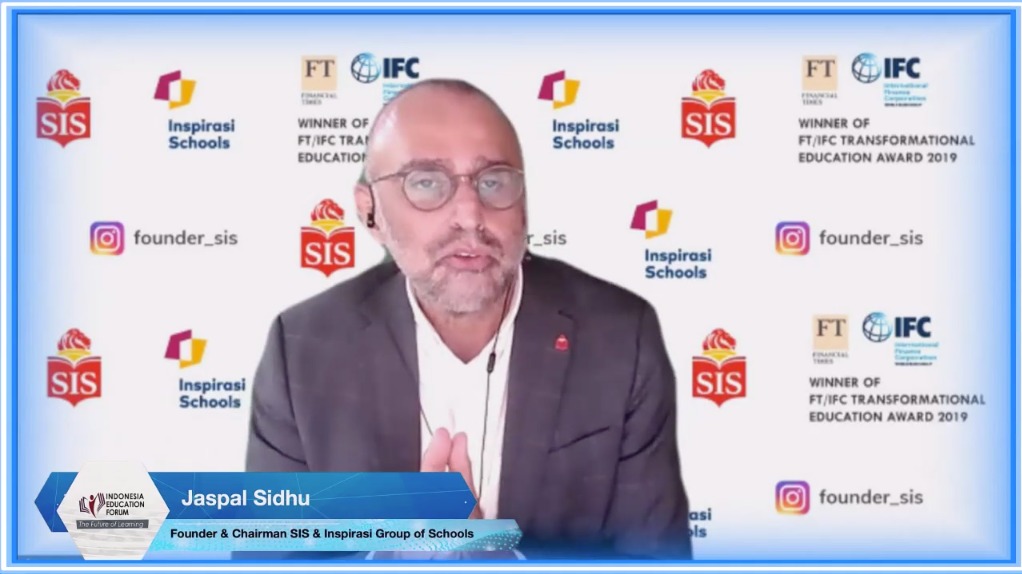JAKARTA –Jaspal Sidhu, Founder and Chairman, SIS & lnspirasi Groups of Schools shared his view on hybrid learning during 2nd Annual Indonesia Education Forum 2021. The student outcome can be improved if no one is operating in isolation. In 2019, SIS & Inspirasi Group of Schools was recognized by Capital Finance in London, Financial Times and IFC World Bank for its vertical collaboration idea in education that has brought fees down as transformational initiatives.
“People should improve learning outcome by looking at 3P’s: people, program and place. Education space should look at innovative ways or ideas to attract and train people. Over the last 18 months,we have hired and trained community teachers with the help of Deloitte and will scale this up with the help of Oxford University,” Mr Sidhu noted.
When it comes to program, people are too focused on content delivery without actually improving process of learning. The Group has applied a system which he has termed as PACE: perseverance, analytical, collaboration and communication and entrepreneurship skills that are needed for employment as noted by Minister Nadiem .
For place, teaching and learning must change since we can no longer take it for granted. Group settings, open spaces for collaboration, the ease of movement for learners from inside to outside should be incorporated. The pandemic is also making people more health conscious. People should start to think what the post pandemic school would be? What will it look like? Architects around the world are still divided on this topic.
On the hybrid learning, the biggest worry for him is the home situation. A hybrid model would mean the children will have to do things on their own but homes need to be conducive for learning. Parents need to get involved, technology needs to exist in the home, so people should not get very excited about giving children something that they cannot really do, he said.
Noah Yarrow, Senior Education Specialist, World Bank noted that there are opportunities to utilise technology differently and this is something that Indonesia like many other countries still has a lot of room for improvement.
“One example, is the inclusion of students with physical disabilities or hearing impairment and there are some really nice digital applications that can work with these challenges for students and help them access schooling beyond the primary level where there is very high rate of dropout,” Mr Yarrow said.
Technology can be used in differentiated ways including by providing games in these areas so that some students who have other challenges may elect to mostly learn from home with use of technology while the majority of students are probably best served in the classroom with the teacher integrating technology into their instruction.

